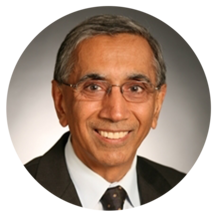About this Presentation
CCPM is, in my opinion, the best formal method for project scheduling and execution control. Just by implementing CCPM, most projects can achieve a significant performance improvement. However it is not a holistic method of project management - project management involves much more than scheduling and control. A project delivered on-budget and on-schedule, even if it was faster and cheaper than ever before, is 100% waste if the output does not deliver any benefit to the project owner. Who wants a factory that manufactures black-and-white televisions, no matter how well executed it was? This is not only an issue for the TOC community who understand CCPM. Project management as a global body of knowledge has suffered from defining a project as the execution stage. In TOC-terminology there has been too much focus on the local (implementing what someone has told you to implement in line with some time/cost/scope estimate), at the expense of the global (why do we need a project at all? and what should the project consist of). This is particularly noticeable in the field of public sector infrastructure projects where a mix of political pressures, busy managers, and an ineffective approach to procurement and contracting, seem to define projects as ‘the thing we contract a company to deliver’, as opposed to the more holistic ‘problem to be solved’ or ‘opportunity to be realised’. CCPM experts, and Eli Goldratt have always been well aware of this issue – that CCPM only addressed the third of the 3 key stages of a project: 1. Why do we need to do something? 2. What should we do? 3. How do we deliver what we have chosen to do? This presentation will position CCPM into the wider project management body of knowledge. It will share established project management techniques, and discuss where TOC can help improve the project management toolkit, over and above the contribution of CCPM itself. It will also discuss why in some fields, CCPM has not gained much traction, and relate this to influential opinions that the potential to improve a project once it moves into execution is minimal, because all the significant performance problems of today are due to poor practices in the early project (planning) stages. The presentation will focus mainly on the delivery of relatively large and infrequent projects, rather than the management of multi-project environments involving larger numbers of smaller projects. Video length: 58:28. PDF: 20 slides.
What Will You Learn
To help you get the most value from this session, we’ve highlighted a few key points. These takeaways capture the main ideas and practical insights from the presentation, making it easier for you to review, reflect, and apply what you’ve learned.

Projects require a long term of gestation and formation and preparation before they're ready to be implemented.
Theory of Constraints (TOC) can help achieve ambitious project goals and targets.
Project performance is driven by three elements, both in combination and independently.
Instructor(s)
Ian Heptinstall
Ian is an Associate Professor of Project Management at the University of Birmingham (UK).
He is a late-career academic, joining the University after 35 years of working in project management, procurement and management consulting.
His project & procurement experience primarily in the capex, construction & engineering fields.
He has been a regular TOCICO Conference attendee since 2011, and in 2020 he helped set up the annual Critical Chain virtual conference, to share CC real world experience with project management practitioners who have little or no knowledge of TOC or critical chain.
In 2016 he published “The Executive Guide to Breakthrough Project Management” about overcoming obstacles to using critical chain on capital/construction projects, in collaboration with Robert Bolton, and he supported Rene Nibbelke in producing the APM’s “Senior Managers’ and Project Managers’ Guide to Critical Chain” (2024

Ms Alka Wadhwa
Alka Wadhwa is an experienced consultant and process improvement expert with over 24 years of expertise in the Theory of Constraints (TOC), Lean Six Sigma, and organizational performance optimization. She has successfully led projects in healthcare, financial services, and manufacturing, driving significant improvements such as a 67% boost in hospital operations and a 140% increase in outpatient visits.
Previously, Alka Wadhwa spent 17+ years at GE Global Research Center, where she led initiatives to enhance various GE businesses through advanced technologies, process redesign, and system optimization. Founder of Better Solutions Consulting, LLC, she specializes in using TOC, Six Sigma, and data analytics to streamline operations and build high-performance teams.
Her work has earned her multiple accolades, including the Empire State Award of Excellence in healthcare.

Dr Gary Wadhwa
Dr. Gary Wadhwa is a Board Certified Oral & Maxillofacial Surgeon with extensive experience in the field. He completed his Oral & Maxillofacial Surgery training at Montefiore Hospital, Albert Einstein College of Medicine in Bronx, NY, and has served as an Attending at prestigious institutions like St. Peters Hospitals, Ellis Hospital, and Beth Israel Hospital in NY. With a career spanning over two decades, he was the former CEO and President of a group specialty practice in NY from 1994 to 2015. Dr. Wadhwa holds an MBA from UT at Knoxville, TN, and has undergone additional training in System Dynamics at MIT, Health System Management at Harvard Business School, and Entrepreneurship and healthcare innovations at Columbia Business School. Committed to expanding access to Oral & Maxillofacial Surgery care, he is currently engaged in a meaningful project to provide healthcare services to underserved populations in inner city and rural areas through non-profit Community Health Centers.
